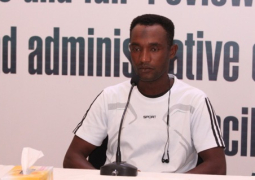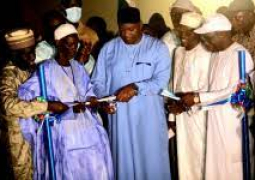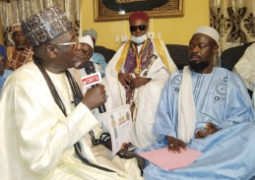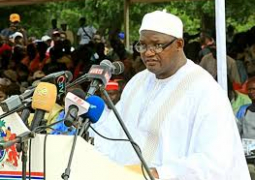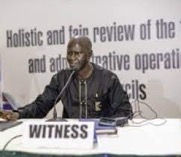
The Crab Island Solarization project, which launched in June 2022, is a project implemented by Banjul City Council (BCC) with resources coming from a city linked with them called Ostend City Council in Belgium.
The project was supposed to be a procurement relating to providing solar lights for Crab Island Upper Basic School and also to construct a fence.
Ebrima Sanyang, Director of Procurement Policy and Operations at Gambia Public Procurement Authority (GPPA), informed the commission that they had received a letter from BCC informing them that they had secured funding from EU through Ostend City Council in Belgium and intended to use part of it for the procurement of solar for the former Crab Island Lower Basic School.
He said BCC further informed them that they had conducted a market research and the funding document suggested that there were few suppliers available in the market with the capacity of fulfilling the procurement.
Mr Sanyang added that due to the planned project, BCC said they were requesting for the use of restricted tender to proceed with the procurement as in line with GPPA Act.
However, Patrick Gomez, Deputy Lead Counsel of the commission, told Mr Sanyang there was “inconsistency” in the letter of BCC as they were requesting approval for open tender but the content of their letter was requesting approval for restricted tender.
Director Sanyang agreed with Counsel Gomez and further informed him that most of the letters council sent to their office was copy and paste and in that instance for BCC, the authority went by the heading which was requested for open tender.
Counsel Gomez told Mr Sanyang that the authority should have sent back the letter to BCC demanding clarification but Sanyang argued that the letter they sent to BCC was clear that they were approving for open tender.
Another issue the commission noticed was that no adequate advertisement was made as regards evidence they had.
“What we have before us cannot clearly explain that there was adequate advertisement made or that open tender procurement method was used,” he said.
In the files, he explained, there was a receipt with invoice number and an attached invoice from Standard newspaper.
Mr Sanyang said as for BCC’s submission to GPPA, the successful bidder was Unique Energy but they had not seen any attached list of bidders identified.
“According to our findings, the contract was signed not long ago but not implemented,” he said. “I don’t know why it was not implemented but I know the contract was signed with the successful bidder but has not taken effect.”
Asked by counsel Gomez if they had any reporting mechanism on how to make follow-ups on projects they had approved for procurement, he said they did have mechanisms because procuring organisations were to report to the authority by completing the supplier assessment so that the procuring organisations would tell the authority the level of implementation or if there were any problems encountered with the suppliers or contractors.
GPPA’s Director Sanyang told the commission that the Ousman Krubally name BCC mentioned in the mintues of their report as a representative from GPPA was “inaccurate” as they did not have any staff with that name.
Read Other Articles In Headlines
